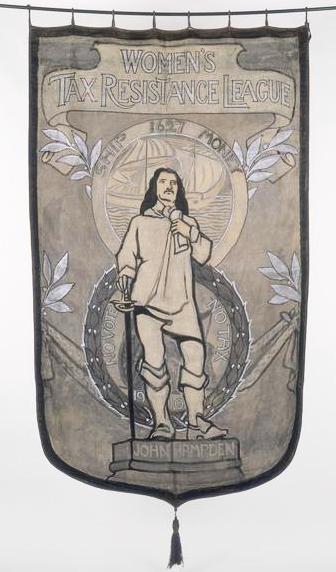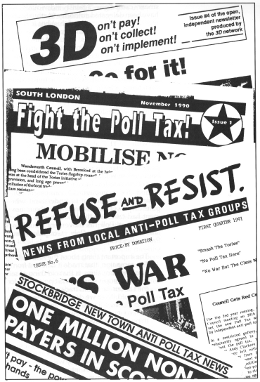The little robots I’ve recruited to read the news for me have been hopping up and down and shouting in their little robot voices about something going on in Catalonia. Much of the shouting is in Spanish and Catalan, though, so it’s taken me some time to figure out what it’s all about.
Òmnium Cultural is a group that promotes Catalan nationalism. In a speech on the occasion of the 50th anniversary of the founding of the group , Muriel Casals, its president, announced a four-year plan to make Catalonia fiscally independent from Spain, and said:
We cannot continue to be plundered. We will manage our resources, with the freedom this implies and the high responsibility that it entails. To do this we need political and social unity. … If Spain refuses to advance along these lines, Òmnium Cultural has taken the decision to develop a deliberate and viable plan to initiate a campaign of tax resistance. Our approach is to redirect taxes to be administered in an account opened for this purpose. This account will not be closed until the resolution of the tax grievance suffered by Catalonia.
La Vanguardia, in its report on the speech, claimed at this point “the applause of the crowd was deafening.”
The next day, Casals expanded on this call, saying that city governments should lead the resistance because it would be harder for the Spanish government to take legal action against them than against individuals. “A threat is not made effective until there is a clear mass of willing people and entities in order that the consequences are very dramatic.”
This made waves in Spain. Josep Gisbert, at La Vanguardia, wrote: “Tax resistance? Why not. But why wait four years?”
The scenario has parallels with the famous tancament de caixes at the end of the 19th century. Take a look at what is recorded about that event in the encyclopedias: The call for tancament de caixes [shutting the cashboxes] was a protest of traders and industrialists in Barcelona in against the law of the cabinet of Francisco Silvela and the finance minister Raimundo Fernández Villaverde. It consisted of a strike by the traders and industralists so as to stop paying the tax without being illegal. The protest was led by doctor Bartomeu Robert i Yarzábal, mayor of the city of Barcelona, and was begun on . The action was the result of the colonial crisis of , which led the Spanish government to impose some restrictive budgets, accompanied by a rise in taxes, to offset the deficit. The protest was against the earnings tax on capital and labor and that of personal documents, with some types higher in Barcelona than in Madrid. The board of the Industrial and Commercial Defense League announced the protest. It created a standing committee, selected by the representatives of more than fifty unions in Barcelona. The protest extended through Sabadell, Mataró, Manresa, Vilafranca, and some traders were imprisoned for not paying taxes.
Changing names and dates, only with some variations, the description could apply to present reality, two centuries later, at the dawn of the 21st. Why, however, is tax resistance posed in this case by Òmnium Cultural not yet possible? It is clear that motives are not lacking, but perhaps the difference is that Catalonia is not politically prepared to face the shocks that follow — which would be internal — its ruling class seems to prefer beating around the bush with statements in order to escape criticism rather than take the bull by the horns with a decisive and committed roadmap. The first serves simply as a throw-away and the second, without a doubt, involves risks, but one day or another you have to take them if you really want to overcome the current suffocating situation.
Why bother now with a new tancament de caixes? Society is more prepared than the political class wants to admit.
One such member of the political class is Joaquim Nadal i Farreras, head of the Catalan Socialist Party and minority leader in the Catalan parliament. He rejected the idea of a tax resistance campaign, saying, “the popular, attractive, demagogic thing would be to say that I am siding with the proposal of Òmnium Cultural, but — beware! — because this nation has many times encountered great explosions of protest or separatism when finally, at the point of waving your hand, you find that the water seeps between your toes.” I’m not quite sure what to make of that metaphor, but I think I get the gist of it.
Joan Laporta, on the other hand, a member of parliament from the small Catalan Solidarity for Independence party, called on the president of Catalonia to immediately launch a tax resistance campaign.
I have always applauded the social movements, but we know that these initiatives have sometimes had to go over the heads of the political parties in the defense of the rights and liberties of Catalan citizens. Without political power, social initiatives can accomplish nothing. I understand tax resistance as a more positive step. It is the only way to overcome the economic crisis that the people are suffering.
A spokesperson for the government brushed this off, calling the Òmnium Cultural proposal “an interesting contribution and consideration” but refusing to endorse it in the midst of its economic negotiations with the Spanish government.
The Justice Minister was skeptical of the tactic: “It comes down to a lack of solidarity. Although you don’t want to pay, you will end up paying. The machinery of the law will empty your bank account. For this reason, I say you have to carefully consider this.”


